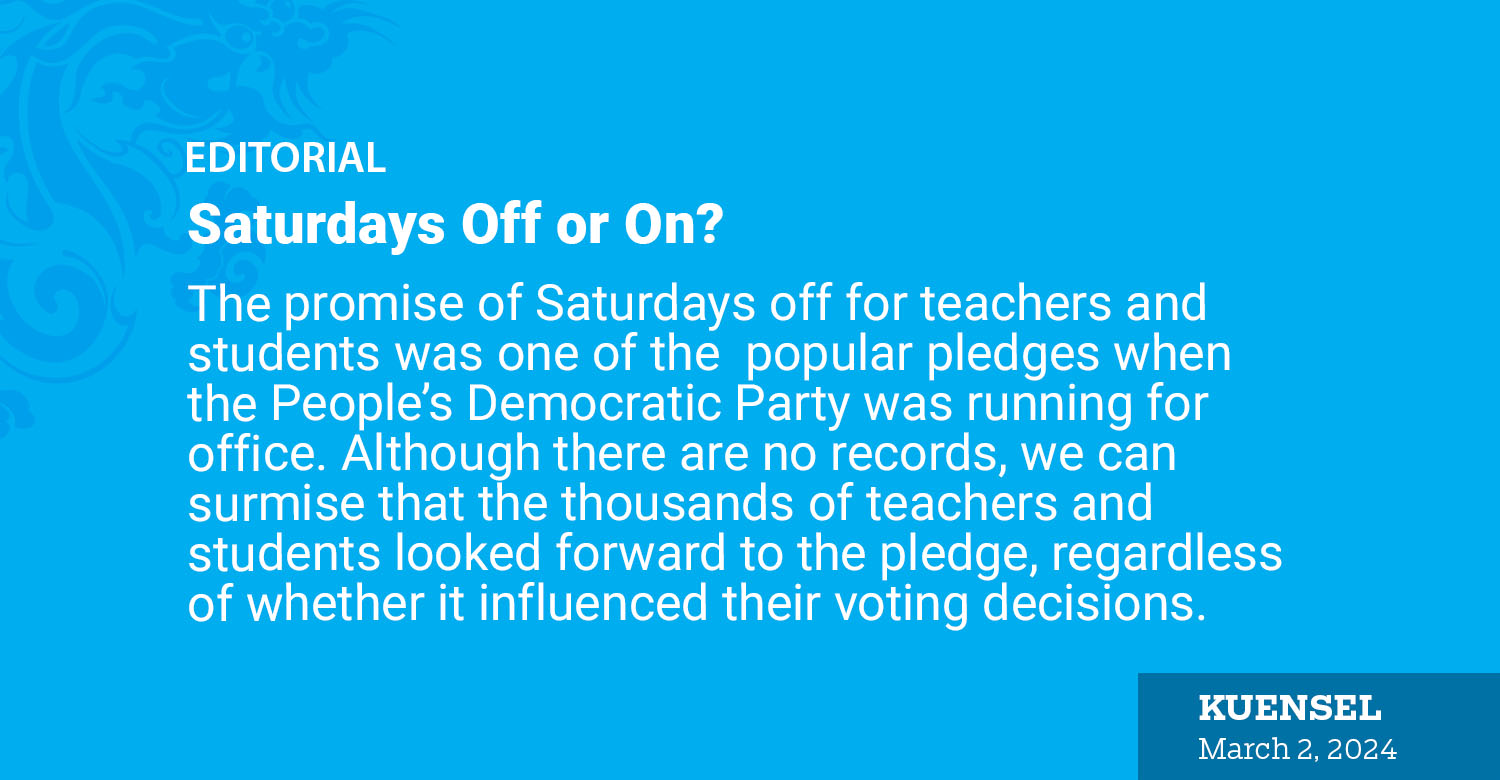The promise of Saturdays off for teachers and students was one of the popular pledges when the People’s Democratic Party was running for office. Although there are no records, we can surmise that the thousands of teachers and students looked forward to the pledge, regardless of whether it influenced their voting decisions.
As the 2024 academic session commenced, the sudden reversal in the government’s pledge has not only left teachers discontented but became the most talked about issue with critics accusing the government of making false promises to garner votes. Many quickly concluded that the government deceived the public.
Yet, it is not all over. There will be, according to the government, extensive discussions, before a final decision is reached. But it is worth noting that the government has shifted responsibility by appointing a committee to assess the feasibility of the promise, reframing it as a proposal rather than a firm commitment. It is commonly understood that political pledges undergo feasibility assessment before being made. Many were convinced by how the Prime Minister defended the pledge during the presidential debate, why then delegate the decision to a committee and play it safe?
The broader issue here is about education and not politics. Will making Saturdays off affect the quality of education? Can the syllabus be covered? What are the repercussions if it cannot? Have thorough studies been conducted to weigh the benefits and impacts? Various education systems operate with four or five teaching days per week, unlike ours. What’s crucial is to carefully evaluate the pros and cons before rushing into a decision.
While the composition of the committee that recommended the government’s stance remains undisclosed, some say that it consisted of just two school principals. If true, this is problematic. Two principals cannot adequately represent the thousands of other teachers and students affected. There’s still time, and the concerns of teachers and students must be heard before any final decision is made; broader representation is essential.
Those within the education sector are best positioned to decide for themselves. That by taking Saturday off would disrupt extracurricular activities or hamper management of boarding schools lacks substance. Saturday is already a half-day, and only teachers truly understand how much teaching occurs and how activities are organised. Teachers and school management can use this time productively for better school administration, planning, and enhancing the teaching and learning environment.
Meanwhile, the biggest beneficiaries of this change would be students in remote schools who walk long distances to attend short classes and engage in social or sports activities. We know physical stress hampers learning. On the other hand, many private schools already observe Saturdays off without issues regarding syllabus coverage or management. In fact, some of these schools produce top-performing students in board examinations.
While a political pledge has been made and there is public pressure, politicising education serves no one’s interests. The government’s commitment to engage in further extensive discussions should result in a well-considered policy that prioritises the needs of all stakeholders.


